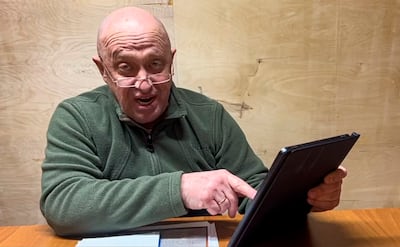The Wagner empire has a large footprint across Africa and the Middle East that is now in danger of disintegration following its founder’s apparent death.
The interests stretch from Madagascar up through a swathe of central African countries, north to Sudan and into Syria, with at least 70 companies linked to Yevgeny Prigozhin.
The empire consists of diamond mines and armies of mercenaries that prop up autocratic governments but are also an extension of Russian foreign policy.
Its net worth is understood to reach into billions of dollars that could now be carved up either among Russian President Vladimir Putin’s inner circle or Yevgeny Prigozhin’s henchmen.
In Syria on 24 June, immediately after the failed mutiny, Russian military police arrested a number of Wagner commanders and have since moved to control the group’s main Middle East hub.
The mercenaries were hired to protect Syria’s oil and gasfields controlling an area extending to more than 25,000 square kilometres and were employed by a Prigozhin company called Evro Polis, The Wall Street Journal has reported.
In Sudan, since 2017 a Prigozhin-controlled company called Meroe Gold has been exploiting its gold resources by taking raw product from artisanal miners into its processing plant 400km north of Khartoum, the capital.
Much of the cash goes into Kremlin coffers reportedly to help finance the war in Ukraine. Wagner Group has also supported the Rapid Support Forces in its fight that began in April against the Sudanese Army with weapons flown in from Libya.
The group has been in Libya for five years. Wagner is now understood to have a base near the capital, as well as one near Benghazi, where it protects oilfields.
Elsewhere on the continent, Wagner is most dominant in the Central African Republic where a company called M-Finance mines gold, diamonds and timber.
Another outfit called Sewa Security Services employs Wagner troops who, among other roles, provide close protection to President Faustin-Archange Touadera, giving Moscow extensive political influence.
Shortly after the failed mutiny, more mercenaries arrived in the Central African Republic, apparently to help Mr Touadera in a referendum to extend his term.
Wagner’s most lucrative gold operation lies in the Ndassima mine the Central African Republic that is run by Midas Resources, a company now under US sanctions. It is said to have the potential to make billions of dollars in profit over the next decade.

Midas is also connected to people involved in Wagner’s mining activities in Madagascar that it runs in conjunction with the government.
There is also a heavy Wagner military presence in Mali, a landlocked country in West Africa, where its harsh tactics against ISIS-linked insurgents is said to be fuelling extremism.
But half of Wagner companies lie inside Russia itself, varying from property to government contracting, as well as owning luxury items such as boats, and as Wednesday’s incident demonstrated, luxury jets.
All of this, it appears, will soon fall fully into the Kremlin’s grasp.


